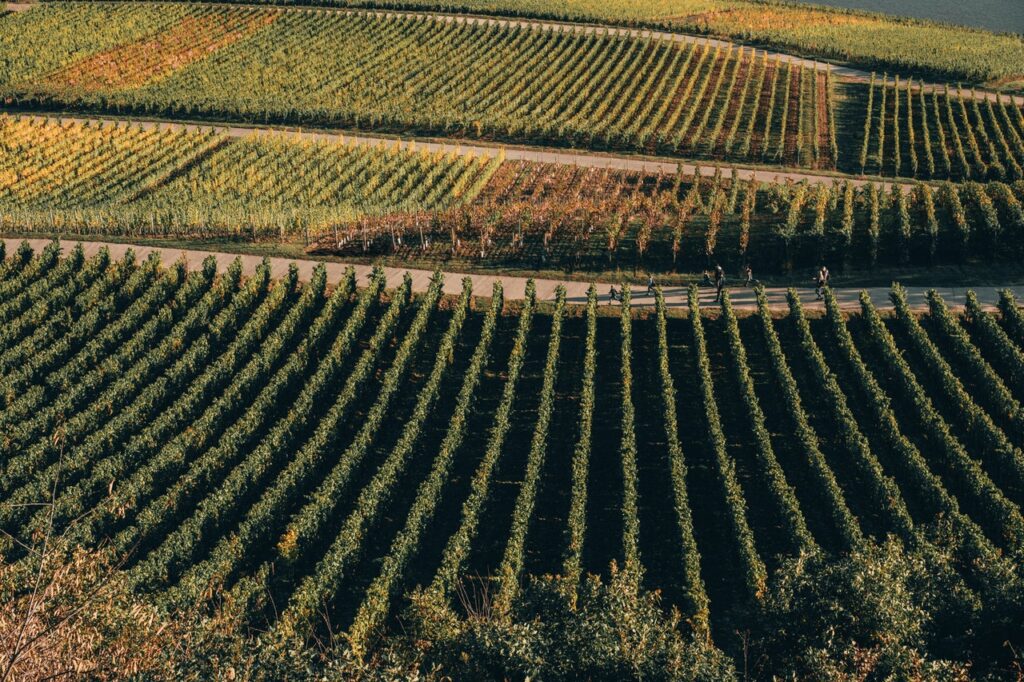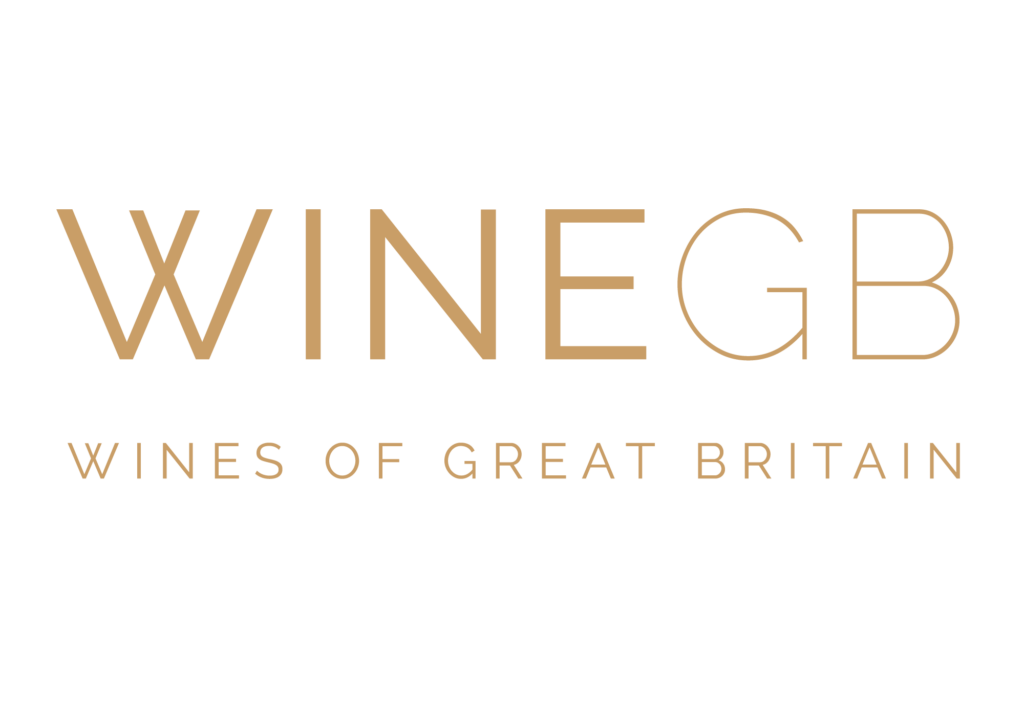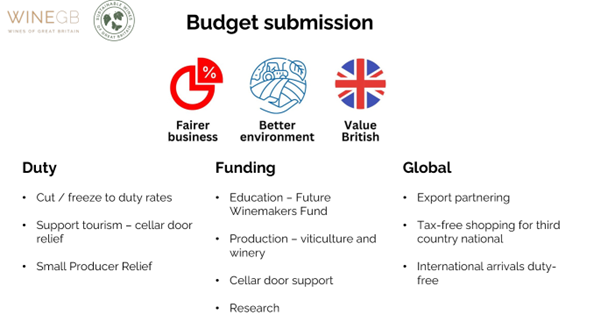
WineGB calls on Government to prioritise the GB wine industry

With two weeks until the Budget announcement, WineGB is calling on the Government to prioritise the English and Welsh wine industry by reducing duty and providing support for growth.
In its Budget submission, WineGB urges the Government to provide greater support for the English and Welsh wine industry, which is currently operating at a competitive disadvantage compared with other wine-producing nations.
The UK is one of the few wine-producing countries in Europe that levies excise on home-grown and produced wines – costing the average British producer and consumer an extra £2.67 a bottle. 10 European countries apply no excise duty on domestically produced sparkling wines (France only applied a rate of €0.07 in 2022), while 15 countries have no excise duty on home-grown still wines (France applied €0.03).[1] This does not constitute a ‘level playing field’ on which GB wines can fairly compete, both domestically and internationally.
Furthermore, duty increases introduced in August 2023 were the largest in almost half a century and the proposed ABV brands for duty calculation – due to be enforced next year – disproportionately target wine. After the last duty rise, Treasury revenue dropped by £1.3 billion, of which wine duty fell by £238 million.[2] A cut in excise duty would stimulate sales of premium English and Welsh wines and would deliver a knock-on increase in Treasury revenue.
As the fastest growing agricultural sector, it is time the Government recognised the value of the domestic wine industry. As well as a duty cut, WineGB is calling for the introduction of a Cellar Door Relief scheme to encourage further investment in tourism facilities and infrastructure by providing full relief from the excise duty payable on a set number of bottles sold from the premises/vineyard. On average, a quarter of winery income is derived from wine tourism, while the sector will support 30,000 jobs across the UK by 2040[3], with well over half of WineGB members based outside of the Southeast. Viticulture employs 17 times more people than traditional farming,[4] which demonstrates the industry’s ability to provide highly skilled jobs for the rural community, which contributes to economic growth.
In addition, a reform of Small Producer Relief by creating alcohol specific thresholds – rather than it only applying to products with less than 8.5% ABV – would enable wine producers to have a level playing field with beer and cider makers. Capital set up costs are considerably greater in wine than other categories due to the time it takes for vines to crop; the short window that presses and harvesting equipment are used; and the length of time taken to mature a wine. Providing this relief will reduce barriers to entry and open up the sector to more potential growers and winemakers.
As an industry that has the potential to further increase tourism, create jobs, and boost the rural economy, we call on the Government to support the UK’s wine future. Initiatives that encourage domestic and international tourism as well as greater grant funding for export, vineyard/winery equipment, education, and research and development would also provide the GB wine industry with the skills, tools, and knowledge to safeguard its future.
WineGB CEO Nicola Bates said: “With two weeks to go until the Budget announcement, we want to support the Chancellor achieve her economic growth plans. By cutting duty, introducing Cellar Door Relief, and reforming Small Producer Relief, she can accelerate our growth in this important stage in our development. Duty rates are acting as a lag to the level of growth we can have and a cut to overall duty, or reliefs, would provide considerable reassurance for our businesses and enable them to invest and grow.”
<Ends>
For more information, please contact Phoebe French (phoebe@winegb.co.uk / +44 (0)7591 588328
Notes to editors:
Wines of Great Britain (WineGB) represents, leads, and supports the sustainable growth of the Great British wine sector. It is the national association for the English and Welsh wine industry. Its mission is to advance the interests of its 500 producer members who represent the vast majority of the UK’s productive hectarage, and establish Great Britain as one of the world’s great quality and most sustainable wine regions.
In its Budget submission, WineGB is calling for:

[1] Irish Wine Market Report 2022, Drinks Ireland, September 2023
[2] gov.uk/government/statistics/alcohol-bulletin
[3] WineGB Industry Report 2019
Explore WineGB


